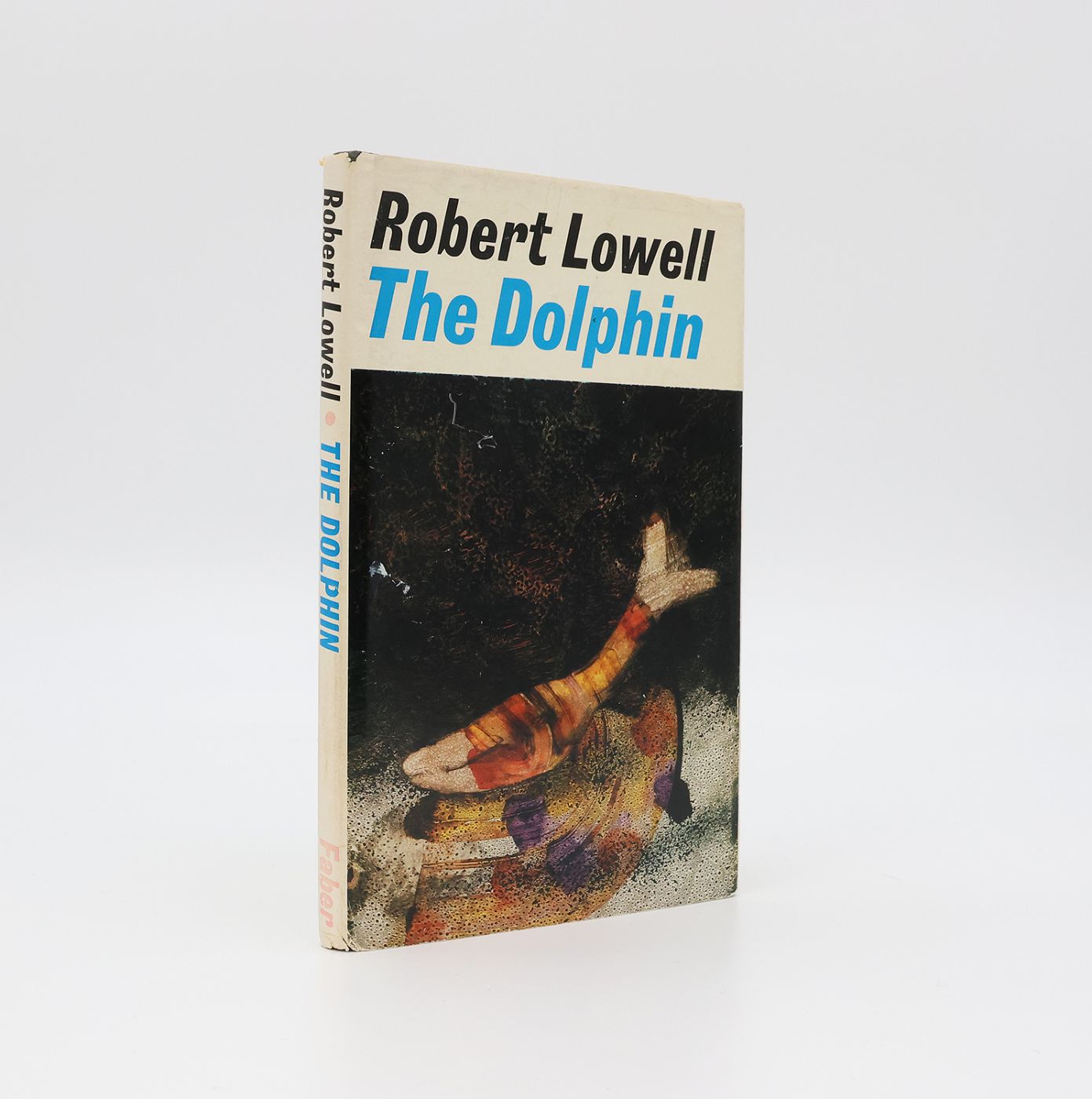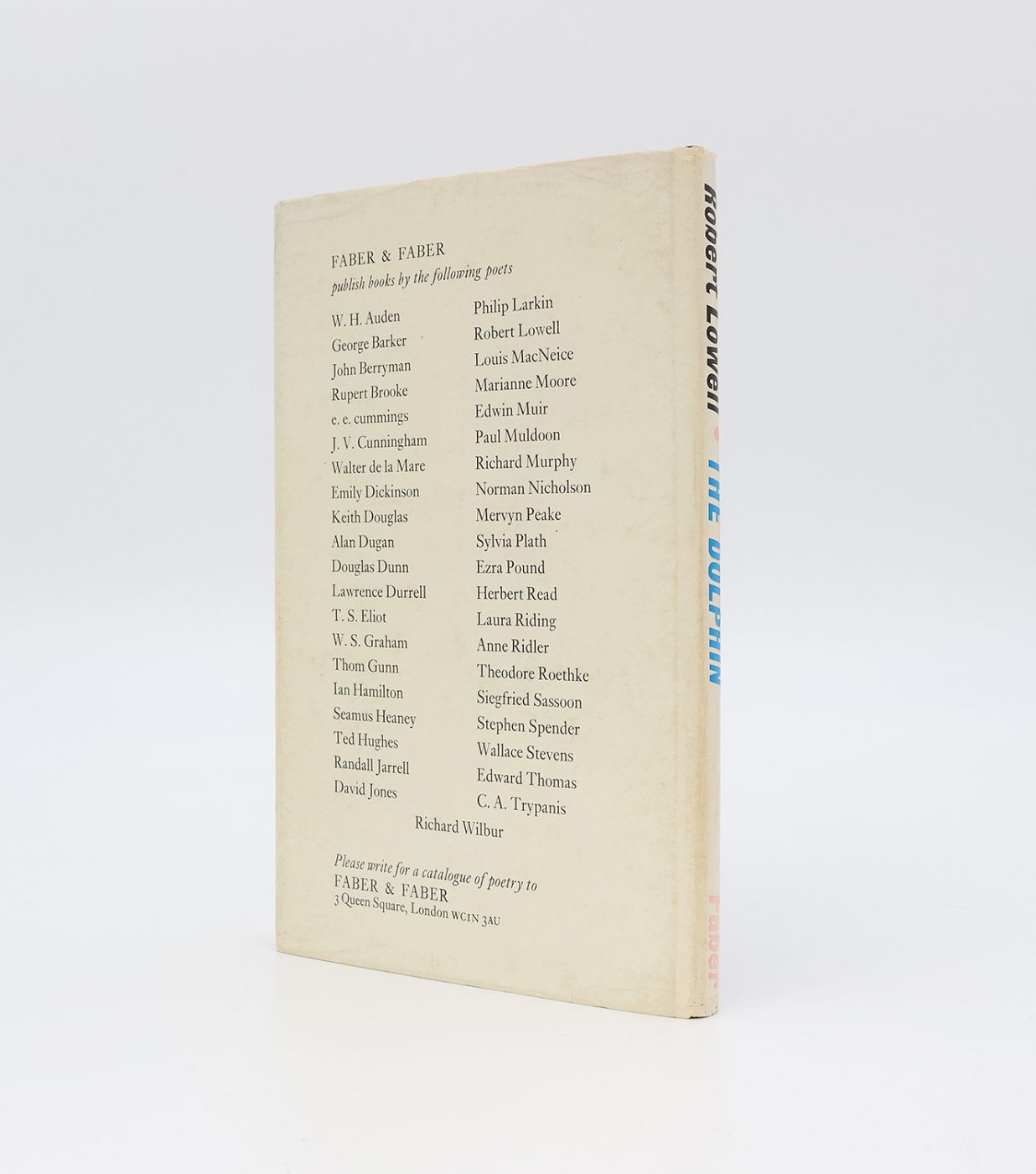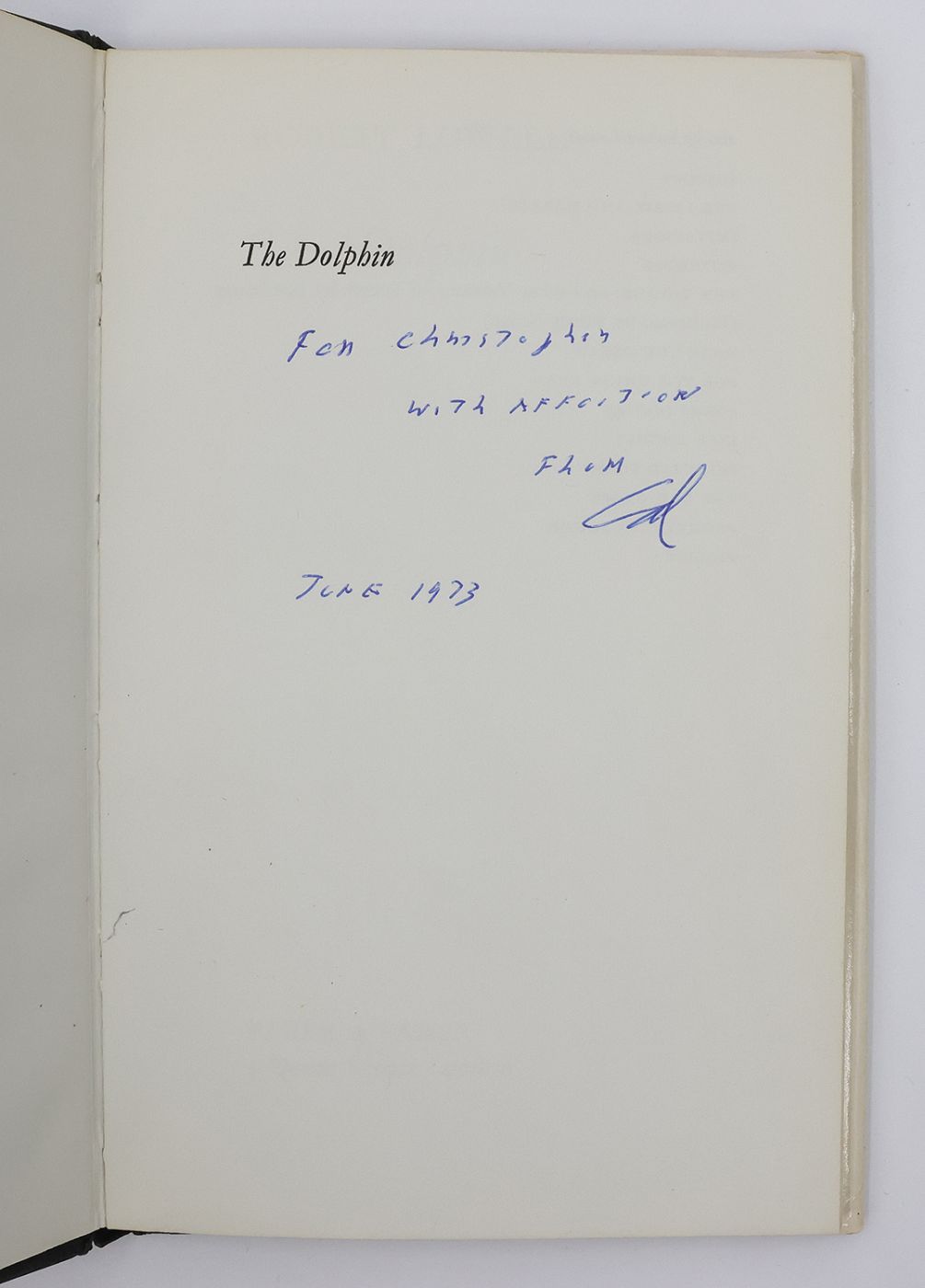THE DOLPHIN
First UK edition, first printing. Affectionately inscribed by the author to Christopher Ricks. Publisher's original black cloth with gilt titles to the spine, in the dustwrapper illustrated by Sidney Nolan. A near fine copy, the binding square and firm. At the foot of p. 15, Lowell has written (in the same blue ink as the inscription) an extra line, "saying too little, then too much", with a marginal line pointing to the space between third and fourth lines where it would be inserted in later editions as line four. He has also, again as per later editions, crossed out the fourth dot at the end of line three. There are four small numerical notes in pencil to the contents pages (presumably in Ricks' hand) giving the corresponding page numbers of Lowell's 'Notebook' (1970) where earlier versions of some sonnets had appeared. The contents are otherwise clean throughout. Complete with the lightly rubbed, nicked and creased dustwrapper. Not price-clipped (£1.75 net to the front flap). A notable association copy of this troubling and controversial volume, inscribed to one of the friends the poet approached for advice prior to publication.
Inscribed by Robert Lowell to his friend, the British critic and editor Christopher Ricks in blue ink on the half title, "For Christopher / with affection / from / Cal / June 1973". (Lowell had picked up the nickname Cal, short for Caligula, as a schoolboy.) Ricks (b. 1933), editor and author of essential volumes on, among others, Tennyson, Keats, Eliot, Housman, Beckett, Bob Dylan, was described by W. H. Auden as "exactly the kind of critic every poet dreams of finding", and our "greatest living critic" by John Carey. William M. and Sara B. Warren Professor of the Humanities at Boston University, co-director of the Editorial Institute at Boston University, he was Professor of Poetry at the University of Oxford 2004-2009. Awarded the 1974 Pulitzer Prize for Poetry, 'The Dolphin' (the third of three volumes Lowell published in 1973), may be better known for the fuss it caused before and after publication than its poetry. A sequence of sonnets charting the breakdown of Lowell's marriage to Elizabeth Hardwick and his extra-marital affair with Lady Caroline Blackwood, the controversy related to Lowell's use (often verbatim) of Hardwick's private letters to him, a decision resulting in a spate of pre-publication letters from friends and fellow writers urging him to reconsider. "I should be less than honest", Stanley Kunitz wrote, "if I didn't tell you it both fascinates and repels me. [P]arts of it are marvellous wild, erotic, shattering. [ ] But some passages I can scarcely bear to read: they are too ugly, for being too cruel, too intimately cruel." In a similar vein, Elizabeth Bishop wrote "It's hell to write this, so please first do believe I think dolphin is magnificent poetry. It is also honest poetry almost. [ ] One can use one's life a[s] material one does, anyway but these letters aren't you violating a trust? if you were given permission if you hadn't changed them. But art just isn't worth that much." The same month (March, 1972), Lowell, clearly vexed, wrote to Ricks, one of a handful of critics he respected, and a friend: "My book problems are complicated and I would like to ask your advice. [The] book is a small one [...] the story of changing marriages, not a malice or sensation book, far from it, but necessarily, according to my peculiar talent, very personal. Lizzie is naturally very much against it. I am considering publication in about a year; it needn't be published, but I feel fully clogged by the possibility of not. This awkward exposition shows my painful embarrassment. [...] I wonder if we could confer sometime toward the end of April?" We don't have Ricks' reply, but his review of the published book (The Listener, 21 June 1973), in which he compares Lowell's poems to the monologues of Browning and Tennyson, was positive: "[T]he recreation of Lizzie's letters", he wrote, "which could be the most monstrous and is likely to be the most disliked part of Lowell's undertaking [,] is unsentimental and movingly just. [L]ucid and poignant, [they] show her as not reducible to the wronged woman or a martyr [...] [H]e is enabled, by speaking so of remorse, to break its addictive elation and to achieve instead some lovingkindness". In a letter to his publisher, Robert Giroux (July 18, 1973), Lowell described Ricks' review as "[a] kind of lawyers summation of the defense in a difficult but just case." (Saskia Hamilton, Ed., 'The Dolphin Letters, 1970-1979' [New York: 2019]; Ian Hamilton, 'Robert Lowell: A Biography' [London: 1983]).
Stock code: 25153
£350
Published:
Category
Modern First EditionsSigned / Inscribed
Literature
Poetry
Recent Acquisitions





